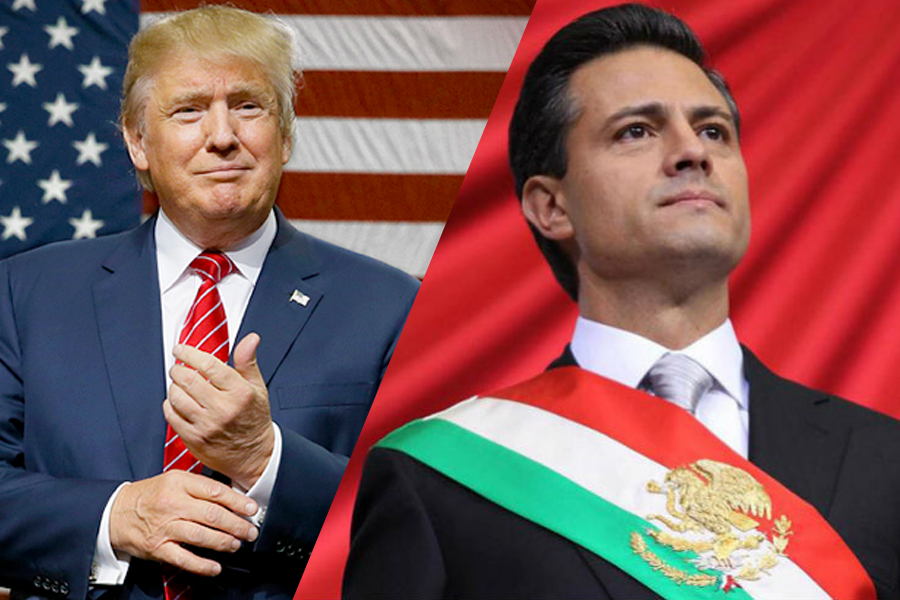Reckless diplomacy
 Photo: http://bit.ly/2jYVmoG
Photo: http://bit.ly/2jYVmoG
NAFTA has not brought great prosperity to Mexico at the expense of Americans, despite inflammatory rhetoric to the contrary.
Not two weeks into his administration, President Trump’s confrontational diplomacy is making allies uneasy and forcing Members of Congress to write letters of apology. First it was Mexico, then Australia and on to Iran.
As a global humanitarian organization, Oxfam understands the often dire economic and social consequences of foreign affairs gone awry. During the Mexico incident, I was with my Latin American colleagues in Mexico City and can attest that community leaders were on edge as they followed the diplomacy-by-tweet from America and the response from their government. Not because of the political theater of it all – but because there are enormous consequences for working people on both sides of the border if relations deteriorate.
Mexico has been undergoing a political crisis of its own. President Peña Nieto’s approval rating has hovered at 12 percent. Its economy is faltering. There is fear of stagflation and a further depreciation of the peso. And the country has all but exhausted its supply of oil; it is no longer the confident petro-state of the 1970s.
NAFTA has not brought great prosperity to Mexico at the expense of Americans, despite inflammatory rhetoric to the contrary. While it has spurred pockets of diversification in the Mexican economy and offered skilled jobs to a small portion of the labor force, Mexicans are divided on its overall merits.
Yet an abrupt halt to NAFTA would be catastrophic for Mexico. It would accelerate the already precarious decline of the Mexican economy. It would put many employed workers on the street and worsen the standard of living of those already below the poverty line. Paradoxically, it would also increase the number of Mexican migrants to the US which in net terms has been declining in recent years.
This does not mean that Mexico is at the mercy of the US. The two countries are deeply interdependent. Mexico is America’s 3rd largest trading partner and Mexicans have collaborated with the US to stem migrant flows through their country of refugees fleeing violence in their homelands—Salvadorans, Hondurans, Afghans, West Africans, etc. They have deported more migrants in transit last year than the US.
Important issues regarding more effective border protection, a reformed NAFTA and closer collaboration on narcotics could have been addressed constructively through traditional diplomacy. But the scheduled state visit was cancelled.
That evening, Mexicans were lining up on television to comment and suggest all sorts of retaliatory measures. It took about 30 seconds for Mexican economists to point out that the 20 percent tariff on imports suggested by President Trump in a tweet would mean that American consumers, not Mexicans, would be paying for the “wall”.
Politicians suggested that if Americans want their wall, then they can also deal with their drug consumption problems and immigration on their southern border on their own. Cancelling security accords and ending other collaboration on drug enforcement and refugees and migration were other common themes. Even former Presidents Fox and Calderon joined the fray. In the end the White House succeeded in doing what no Mexican politician has been able to do in the last 25 years, unite the entire country behind their unpopular President against a common enemy.
But while this public spat drove up Nieto’s ratings in the polls, two images stuck out for me while there in Mexico City. One was a picture on the cover of one of the main daily newspapers. It showed graffiti on a portion of the existing wall separating the US and Mexico. It read: “On this side, we have dreams too”. The other was the abundance of very unflattering Donald Trump piñatas in the shopping stalls lining Mexican streets. These expressions from the working people of Mexico are unsettling. We must recognize that the dreams of young Mexicans, either in Mexico or the US, will endure and it is in our interest to see that those dreams are realized on both sides of the border. Fostering tensions through reckless diplomacy could have dire and unintended consequences.